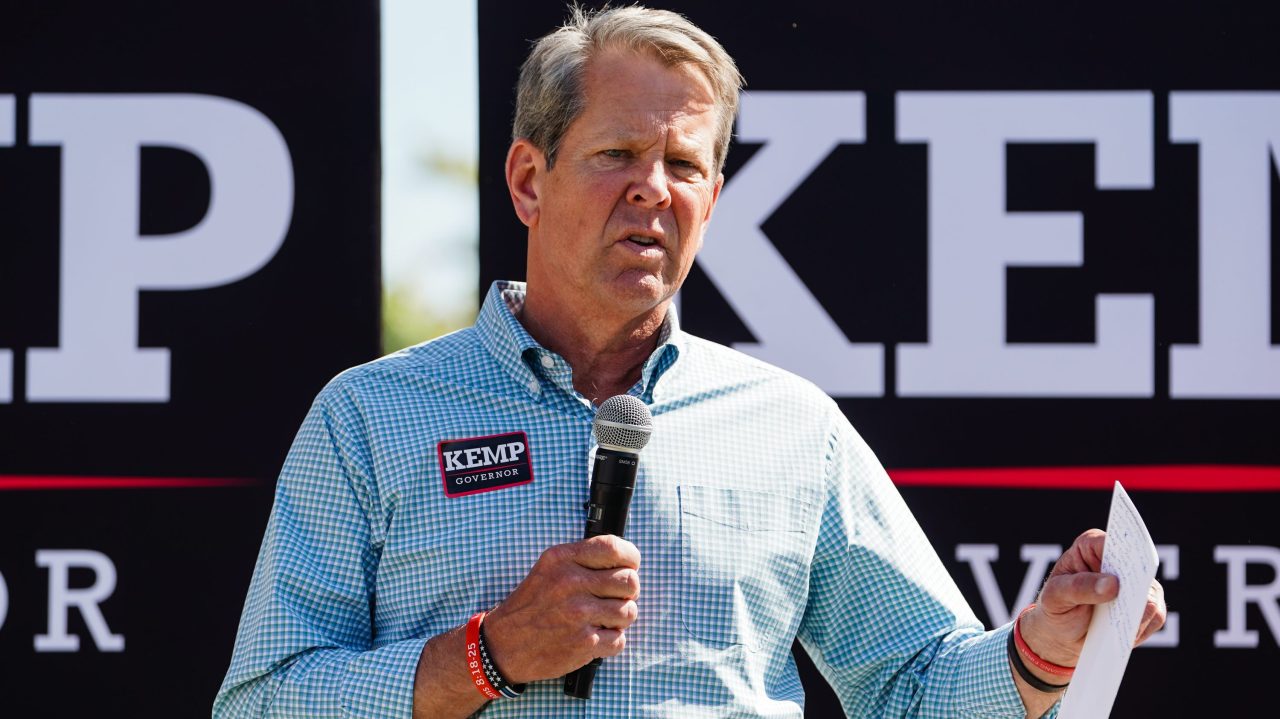
Whether or not the House settlement is fully approved, Georgia’s colleges and universities can begin paying their athletes for their name, image and likeness immediately.
On Tuesday, Georgia Gov. Brian Kemp (R) signed an executive order that prohibits the NCAA or any athletic conference from punishing schools that directly compensate student-athletes for their NIL.
Currently, the NCAA does not allow schools to directly pay their athletes for the rights to their NIL use. However, the organization has agreed to remove the edict as part of a pending settlement that is still working its way toward court approval.
In a joint statement emailed to Sportico, Josh Brooks and J Batt, the respective athletic directors for Georgia and Georgia Tech, expressed their thanks to the governor for signing the order. “In the absence of nationwide name, image and likeness regulation, this executive order helps our institutions with the necessary tools to fully support our student-athletes in their pursuit of NIL opportunities, remain competitive with our peers and secure the long-term success of our athletics programs,” they said in the statement.
Georgia has joined Virginia in explicitly allowing colleges to compensate athletes for their NIL—a concept that is contemplated in the proposed but not-yet-approved settlement between the NCAA and attorneys for athletes to resolve the House, Carter and Hubbard antitrust litigations.
The Georgia law is less transformative than it might have been before the proposed settlement and before the NCAA announced it would no longer enforce amateurism restrictions in the context of NIL. The NCAA took that step during the spring after U.S. District Judge Clifton Corker, in Tennessee and Virginia v. NCAA, issued a preliminary injunction prohibiting the NCAA from enforcing rules that preclude college athletes and recruits from negotiating compensation for NIL with collectives and boosters.
As the NCAA moves toward a model where colleges in power conferences can directly pay college athletes for media rights, ticket sales sponsorships and NIL, the Georgia law seems to codify a concept that will soon be in play.
The Georgia law is also consistent with U.S. District Judge Claudia Wilken’s concerns about restricting NIL opportunities for college athletes. She stressed in a recent hearing that she would not approve a settlement that takes away NIL opportunities for college athletes. The settlement currently contemplates a distinction between NIL deals that draw from use of athletes’ right of publicity versus those deals that are connected to collectives and boosters and appear to be more in line with pay-for-play. One proposed mechanism to enforce that distinction is the use of fair market value analysis in review of NIL deals. Whether that distinction can be consistently and logically applied is a source of industry debate.
It’s possible Wilken could cite the Georgia law in further deliberations with the attorneys. The parties have until Sept. 26 to send her a revised settlement. Should the settlement collapse or be rejected, the cases would return to the docket.
Kemp’s order comes as the University of Tennessee, an SEC rival of the defending football champion Georgia Bulldogs, announced that it will tack on a “talent fee” onto football tickets next season to help fund its revenue-sharing pool for athletes.
